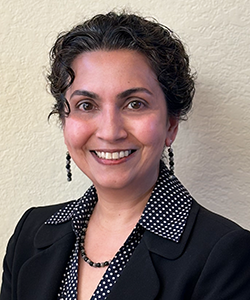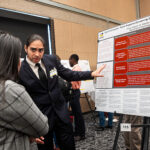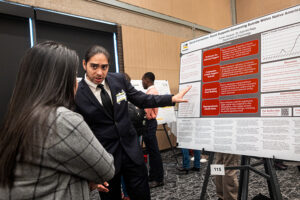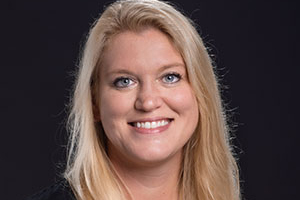Priya Nambisan, associate professor of biostatistics and health informatics in the Joseph J. Zilber College of Public Health, has been selected as a 2024 Fulbright U.S. Scholar for India.
Her research focus will be on digital self-health management platforms for the aging population. Her host institution in India will be the Tata Institute of Social Sciences in Mumbai.

Nambisan is founder, developer and principal investigator for the digital platform myHESTIA (my Healing Ecosystem for Self-care & Therapeutic Integration for the Aging), which helps older people track and better understand their health conditions. It also fosters social connections and support networks by linking them and their caregivers with others who share similar experiences.
In India, Nambisan said, the vast majority of people now have access to technology such as mobile phones and the internet, making the use of health technology more accessible. At the same time, the number of elderly people is expected to increase rapidly in the coming years, creating a need for technology-enabled self-care solutions for the aging. And further, “because of the unprecedented economic growth in recent years, more women have entered the workforce, leaving significant gaps in the family-based support system for the aging,” Nambisan said.
Nambisan will be researching and evaluating the myHESTIA.org digital platform to see how it can help support families and their elders in India.
“I wanted to adapt the platform to serve the needs of older adults in India,” she said. The platform can be used by family members or caregivers. In addition to health trackers and self-care resources, the technology promotes better communication among health professionals, elders and family members, she added.
For example, Nambisan said, sometimes when older adults go to the doctor, they don’t remember to talk about all the issues they’re having or don’t share that information with their children. This system allows the adult children or caregivers to video conference with the doctors about concerns and symptoms, reducing the burden on physicians and provide support for in-home care.
Nambisan hopes to gather data on the impact of the platform. The Tata Institute, where she will be based, is highly reputed and has researchers who have focus on physical and mental health of the aging.
The research builds on Nambisan’s work at UWM. She is director of the Aging Research and Digital Technologies Lab and director of the Social Media and Health Research & Training (SMAHRT) lab.
She will be traveling to India three times in 2024-2025, for periods of a month and a half, starting in December 2024, to conduct the research.
Fulbright Scholar Awards are prestigious and competitive fellowships that provide opportunities for scholars to teach and conduct research abroad.






